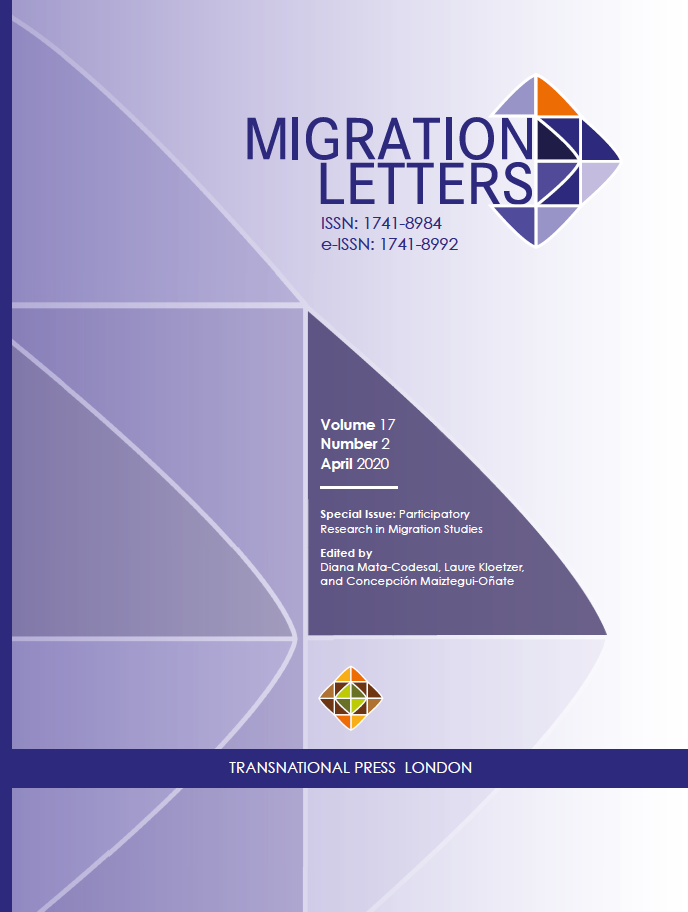Editorial: Strengths, Risks and Limits of Doing Participatory Research in Migration Studies
Editorial: Strengths, Risks and Limits of Doing Participatory Research in Migration Studies
Author(s): Diana Mata-Codesal, Laure Kloetzer, Conception Maiztegui-OñateSubject(s): Methodology and research technology, Editorial, Migration Studies
Published by: Transnational Press London
Keywords: participatory methods; migration studies; participation; power; gender;
Summary/Abstract: This special issue, entitled "Participatory methods in migration research", deals with the methodological challenges and ethical implications of applying participatory methods with migrant populations. Participatory research is often used as a general term for a variety of research projects using different methods, including action research, collaborative research, community-based research, co-creation or some arts-based projects. This special issue assumes that participatory research involves a different epistemology that allows for new insights, reflections and stories. Consequently, one of its main characteristics is the horizontal relationship between researchers and participants, based on the recognition of all the people involved as equal human beings collaborating on a particular research question. Through the SI, one of the themes that is discussed, from a variety of perspectives in the field of migration studies, is power distribution. The challenge is to achieve a more equal share of power among all those involved in the research process. From the set of articles presented here, another theme that emerges strongly is the struggle for social justice beyond the research process itself. The special issue contains a range of participatory research approaches in the field of migration studies from different parts of the word (Africa, Europe, USA) revealing a growing interest in these methodologies.
Journal: Migration Letters
- Issue Year: 17/2020
- Issue No: 2
- Page Range: 201-210
- Page Count: 10
- Language: English

